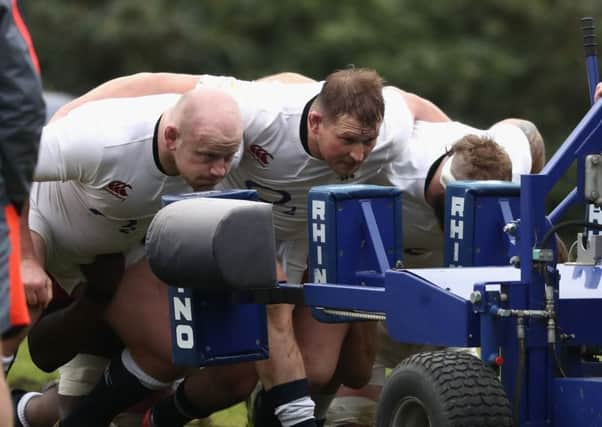Eddie Jones must battle history as England take on Wales


If his team get on top of Wales in the scrum, as they should, and prevail in the battle of pace in the wide channels, which is fascinatingly less certain, they will take their record run of victories in all matches from 15 to 16, and stay on course for a first back-to-back Grand Slam in the Six Nations in 25 years.
If not, England face blowing their place in history, with New Zealand’s world-leading sequence of 18 consecutive wins out of reach. And, more immediately, the wearers of the red rose may need to win their remaining three fixtures culminating with Ireland in Dublin away on 18 March in order to retain the Championship title. Either that, or the bonus points that Jones has insisted thus far are of minimal relevance will suddenly loom large as a deciding factor
Advertisement
Hide AdAdvertisement
Hide AdJones can already go one better than most when it comes to the brutality of sport as a results-based business. The last time the unfailingly-engaging Australian went to Cardiff as an international coach, in charge of his native country’s Wallabies, he knew he was going to be fired, even before the kick-off. It was November 2005, Australia were on a dismal run of seven losses in eight matches (about to become eight in nine when Wales won 24-22) and Jones’ position could not have been more personally painful.
“I remember a journalist coming to me and saying ‘you’re going to get the sack’,” the 57-year-old recalled this week. “He knew, and so I knew, I was going to get the sack.” Sure enough, five days later,
Jones was shown the door, undermined less by the supposed Welsh dirty tricks of disrupting opponents’ preparation he has alluded to in recent days and more by behind-the-back briefing against him from Wallaby colleagues.
“When you lose the national job, you are devastated and I was devastated,” Jones said. “But that’s not pertinent to this game.”
Maybe, maybe not. A man is the sum of his experiences and Jones’ railing against Cardiff’s goats and daffodils and chilly changing-rooms, or deciding the sky should be the limit in the open-or-shut case of the Millennium Stadium roof, have not come from anecdotes picked up second-hand.
“If the air is cold it contributes to a harder ball, which makes it harder to catch, pass and keep in general play, so they [Six Nations matches] are tight affairs,” he said, with a welcome specificity that points perhaps towards a contest decided more by good discipline at the breakdown and the respective goal-kicking of Wales’ Leigh Halfpenny and England’s Owen Farrell than by the raw speed and threat from turnovers offered by the home side’s openside flanker Justin Tipuric, which England have replied to in kind by dropping Tom Wood and selecting the in-form Harlequins back-rower, Jack Clifford.
Jones promised “daring” from the start in the 19-16 win over France last week, but didn’t get it. The English scrum went well, however – “the best it’s been in a long time,” said Dylan Hartley, England’s captain and hooker – and the Harlequins loosehead Joe Marler, who finished last year’s narrow victory over the Welsh at Twickenham in hot water for his “gypsy boy” remark to Samson Lee, will look to burrow under Wales’s starting tighthead today, the Yorkshire-born, 20st Exeter Chiefs prop Tom Francis.
If the absence of the injured Vunipola brothers is not to be felt, the likes of Jack Nowell and Nathan Hughes must be a consistent threat on and over the gainline.
Advertisement
Hide AdAdvertisement
Hide AdThe exciting Ospreys fly-half Sam Davies lurks as a possible game-changer on a strikingly high-powered Welsh bench. Both Hartley and Wales’s skipper Alun Wyn Jones will aim to get on the right side of the highly-rated French referee, Jérôme Garcès (who handled both the teams’ meetings in 2015).
Only one can win? Given the up-and-down nature of a beautiful rivalry, it could be worth a gentle flutter on the draw.